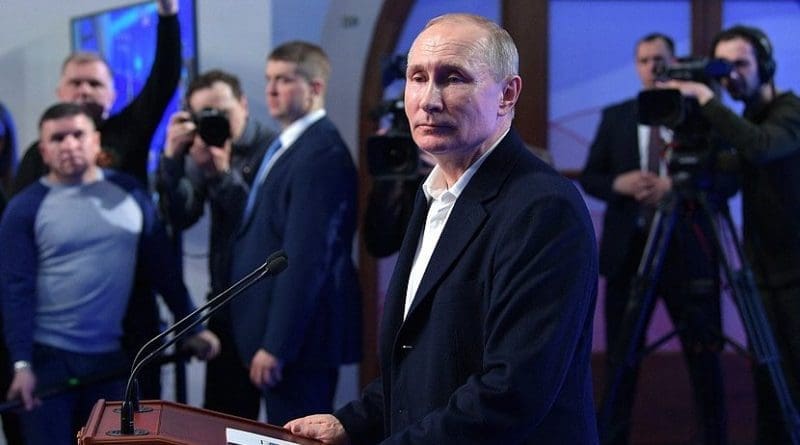Non-Russian Republics Unite Against Moscow’s Draft Language Law – OpEd
By Paul Goble
More than any other issue or event in their history, the non-Russian republics of the Russian Federation are coming together to oppose draft legislation formalizing formalize Vladimir Putin’s insistence that Russian be the only required language in Russian schools with all others being treated as voluntary electives even in non-Russian republics.
Given Putin’s promotion of this idea and the support it has within his docile Duma and all other Moscow institutions, it is unlikely that the non-Russians will succeed in blocking this measure. But the experience of such cooperation in opposition to Moscow may matter more on other issues where they may have a better chance to win.
And the Kremlin leader’s decision to use language policy as his latest weapon against the non-Russians may thus boomerang in potentially dangerous ways, not only reducing the possibilities Putin will be able to use a divide-and-rule strategy to get his way but almost certainly requiring him to adopt even more repressive measures.
Three developments in the last few days point to such outcomes. First, the republic parliaments of Kalmykia, Daghestan, and Kabardino-Balkaria have voted to support the appeal of the Tatarstan State Council against the proposed legislation, a remarkable display of inter-republic cooperation (kam.business-gazeta.ru/news/383076 and idelreal.org/a/29243556.html).
Second, Ilshat Aminov, a member of Tatarstan’s State Council, says that ever more non-Russian republics are considering a joint appeal to the Russian Constitutional Court about the draft legislation arguing that such a measure would violate the rights of the republics (tatar-inform.ru/news/2018/05/21/612218/ and nazaccent.ru/content/27286-nacionalnye-respubliki-mogut-obratitsya-v-konstitucionnyj.html).
And third, yesterday a Moscow roundtable of opponents of the draft language law decided that their best future course was to form a Democratic Congress of the Peoples of the Russian Federation, a group that would represent the republics and their nations against what Moscow wants to do (kommersant.ru/doc/3635986 and idelreal.org/a/29241605.html).
This last measure is probably the least likely to have an impact on the vote in the Duma; but over time, it may prove to be the most consequential for the fate of the Russian Federation because it directly challenge what Moscow is doing in the name of democracy rather than just nationality, thus joining together two forces that played a key role in 1991 and could do so again.

